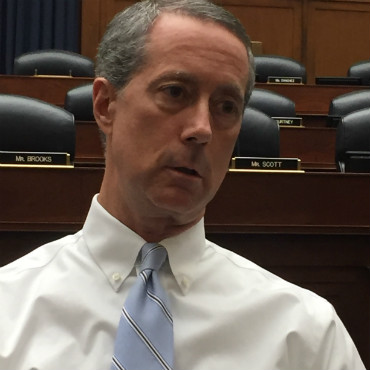Acquisition reform prioritized in 2018 NDAA
The House Armed Services Committee is making acquisition reform a priority in its 2018 National Defense Authorization Act draft.

Rep. Mac Thornberry (R-Texas) has some specific instructions to accompany the Defense Department's fiscal year 2018 appropriation.
The House Armed Services Committee wants to give the Department of Defense a check for $696 billion in fiscal year 2018, but it wants the Pentagon to do a better job of spending its allowance.
The HASC mark of the 2018 National Defense Authorization Act provides the DOD with a base budget of $631.5 billion -- $28.5 billion more than the Trump administration's request.
Committee staff told reporters that the bill makes acquisition reform a priority again -- from the weapons systems procurement level down to how the DOD purchases basic goods and services.
One new initiative is an attempt to eliminate duplication in the more than 30 different contracting procurement and solicitation management IT systems across the DOD.
"The chairman's mark would restrict funding for these service unique contract writing systems in this fiscal year pending an assessment of what the underlying requirements are that would actually dictate the need to have service unique contract writing systems," said a committee aide.
One contract system in each service as well as in one agency will have funding reduced in 2018 as part of this effort to gather information about the systems and push the DOD to greater use of shared services.
In May, HASC Chairman Mac Thornberry (R-Texas) introduced a stand-alone bill to enable the DOD to purchase more of its day-to-day supplies through commercial vendors and to streamline the processes for audits and contracting of services. The provisions of that bill have been rolled into the NDAA mark.
Committee staff also said the mark includes some of the initial recommendations from the Section 809 panel that is reviewing the DOD acquisition process and looking to make drastic changes to streamline the process.
This is all part of the committee's efforts in recent years to pare down the acquisition requirements that have accumulated over time and strike a better balance between speed and agility and oversight and compliance.
The mark provides $8 billion in funding for cyber operations, which includes a boost to $647 million for U.S. Cyber Command to support its elevation to a full combatant command. That process is being governed by the 2017 NDAA and committee staff said there is no new language in the 2018 bill pertaining to the elevation or eventual split of the NSA and CyberCom.
The mark includes cyber provisions from other recently introduced bills, such as $10 million in funding for DOD cyber scholarships, congressional oversight of sensitive cyber operations, $5 million in funding for NATO's Cooperative Cyber Center of Excellence and giving the DOD CIO responsibility for oversight and policy of supply chain risk management for IT systems.
The House budget and appropriations committees are currently negotiating a budget deal, and HASC aides expressed confidence that when the dust settles, everyone will agree on the total $631.5 billion base funding for 2018.
This story was updated to accurately reflect the total overall proposed defense budget sought by the House Armed Services Committee for the 2018 NDAA.





